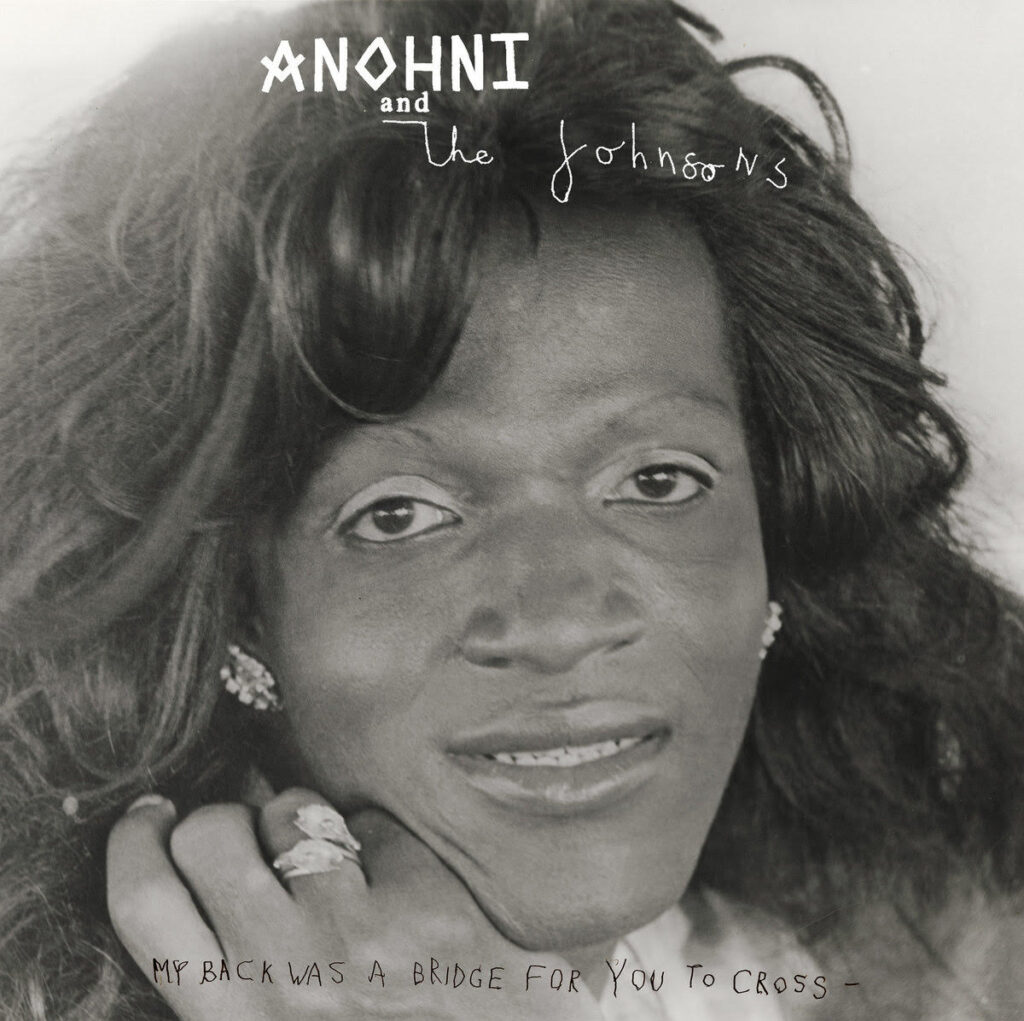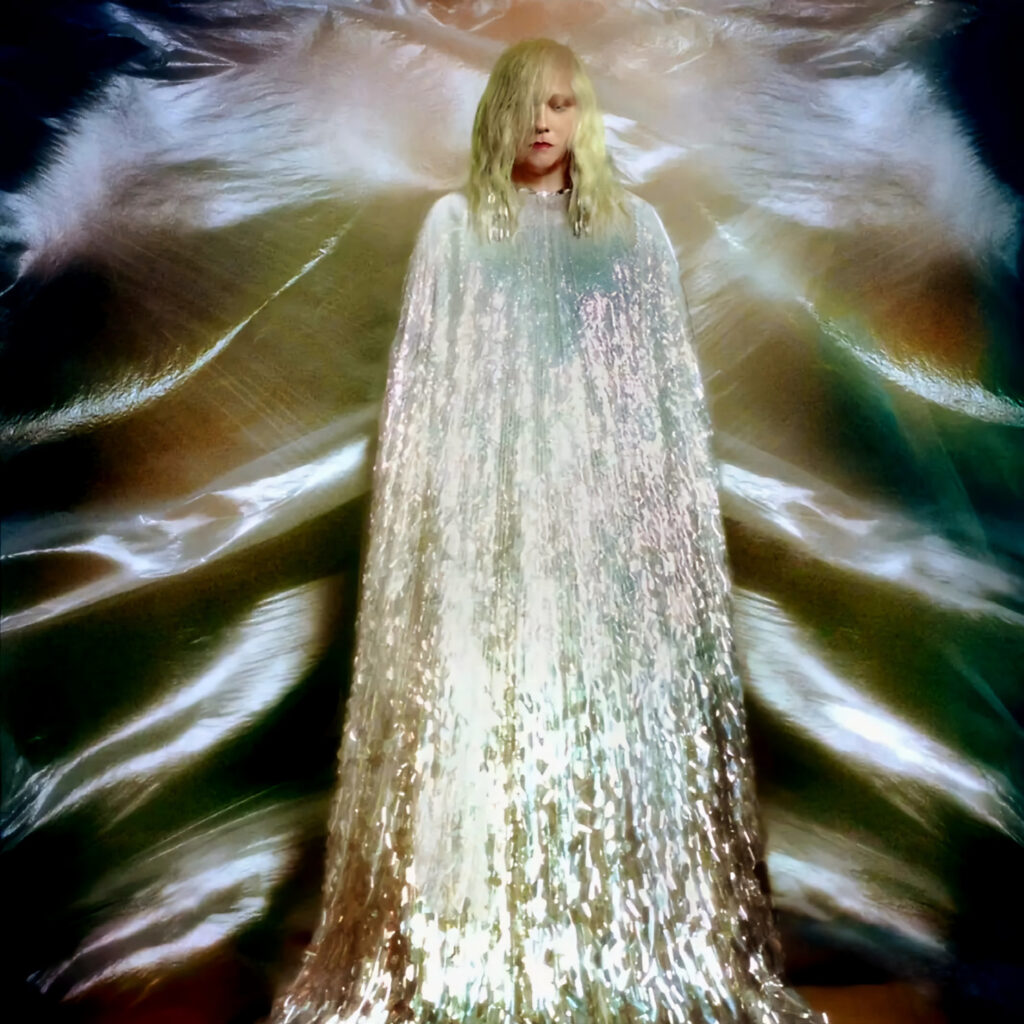
The cover artwork of Anohni’s studio album is a black and white image of the reticent or unimpressed face of Marsha P. Johnson. In the photo, her crinkled chin rests on her right hand as she stares directly into the camera.
The record marks the reunion of Anohni and her longtime New York-based ensemble, the Johnsons. It is her fifth album with the band and the first time working with them since 2010’s Swanlights. The band’s name is an homage to the life and work of Anohni’s spiritual guide and muse, Marsha P. Johnson, the late LGBTQ rights pioneer and well-known architect of the 1969 Stonewall Riots in New York City, which helped spark the movement for gay rights in America.
On the album’s opening track and first single, “It Must Change,” Anohni reaches for the jugular with poetry and poise. Ignited by an unassuming blend of guitar and bass, Anohni demands, ‘The way you talk to me, it must change/ The things you do to me/ The way you leave me/ The seeds you give to me/ it must change.’ The track takes inspiration directly from Marvin Gaye’s smooth and timeless, 1971 Motown hit, “What’s Going On?” The artist’s protest song even features a talking part by Anohni, similar to Gaye’s enduring clarion call for justice. But here, the lyrics are scant, and the message is abstract.
Born Antony Hegarty, in the cathedral city of Chichester, West Sussex in England, Hegarty moved to San Francisco, California with her family in 1981. In 1990, Hegarty moved to Manhattan to study experimental theater at New York University. In the summer of 1992, she formed Blacklips, a performance collective, with collaborators Johanna Constantine and Psychotic Eve. That same summer Anohni met Marsha P. Johnson, just six days before Johnson’s body was discovered in the Hudson River. When Antony and the Johnsons released their self-titled debut in 2000, it featured “River of Sorrow,” a tribute track to Johnson.
“Go Ahead” is the record’s second and shortest track, a shrill rock number that is equal parts Hendrix and Prince. ‘Go ahead, kill your friends… / Go ahead, hate yourself,’ and ends with Anohni roaring resignedly, ‘I can’t stop you.’
Anohni formed Antony and the Johnsons in 1995 and has released critically acclaimed records since then, including the 2005 Mercury Prize winning, I Am a Bird Now. That album explored the artist’s own duality and personal transformation and featured appearances from Boy George, Lou Reed, Rufus Wainwright, and Devendra Banhart.
Solo releases from Anohni include 2016’s Hopelessness and the 2017 EP, Paradise. In 2016, Anohni became the first openly transgender performer nominated for an Academy Award for Best Original Song along with J. Ralph for “Manta Ray,” from the film Racing Extinction.
The record’s second single, bittersweet “Sliver of Ice,” recalls a conversation Anohni had with her mentor and former collaborator, Lou Reed, from his deathbed. Reed had found a new appreciation for the taste of ice. With its slow, aching arrangements and enchanting drums, Anohni’s voice is the shimmering highlight:
Now that I’m almost gone
The sliver of ice on my tongue
In the day’s night
It tastes so good, it felt so right
For the first time in my life
Released via the Secretly Canadian label in July 2023, the record features production credits from London-based producer and writer, Jimmy Hogarth. Hogarth most notably has worked with artists such as Tina Turner, Amy Winehouse, Estelle, Paolo Nutini, and most recently, Dermot Kennedy. In 2008, Hogarth won a Grammy for his production on Suzanne Vega’s Beauty & Crime.
On My Back Was a Bridge for You to Cross, Anohni’s concerns are personal yet global. From addressing personal loss and alienation, to ecocide and inequality, and the ongoing environmental concerns that have plagued humanity for decades, Anohni is unabashedly political and hopefully courageous.

The songwriter delivers a stunning vocal performance on “Scapegoat,” her mellifluous vibrato channeling the vitriol and hate of society, ‘You’re so killable/ Just so killable.’ The tempo slows down as Anohni breathes, ‘You’re my scapegoat, it’s not personal.’ By the end of the track, the song transforms with a soaring guitar solo and the steady drumming of cymbals, reminiscent of Prince’s “Purple Rain.”
Elsewhere, “Rest” is a progressively riotous track about longing, ‘I wait for you to come on home/ For to go to sleep.’ Meanwhile, the project’s third single, “Why Am I Alive Now?” is a deceptively breezy and upbeat survivor’s guilt anthem. Anohni questions, ‘Why am I alive to watch this duress? Why am I seeing this stress?’ Yet, the track’s title question remains painfully unresolved by the end of it, ‘I don’t know why I’m alive now.’
“You Be Free” is the skeletal closer for the 10-track project. The ditty reads like a letter from Marsha P. Johnson beyond the grave, imploring Anohni to “keep trying.” ‘I danced by violent times/ It was hard to live…/ It was my time…/ My back was a bridge for you to cross… / You be free for me, for me.’
While the record tackles some dire realities of our world —bigotry, loss, societal malaise, cultural rot, and an increasingly warming planet— there is hope to be found here. Hogarth’s production adds soul and tenacity to the album’s weighty subject. G&S





Leave a Comment